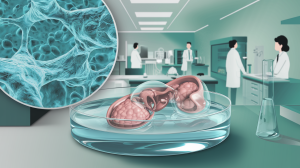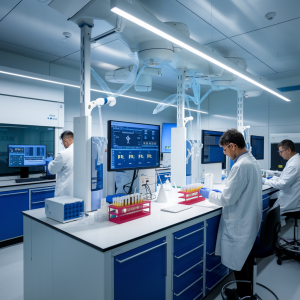Cancer is a frightening disease for many, but did you know that understanding genetic risk factors and appropriate testing can help prevent and reduce the risk of cancer? Let’s explore how genetics play a role in cancer development and what we can do to protect ourselves.
Genetics and Cancer: A Crucial Connection
Genetics is one of the key factors determining cancer risk. Mutations in certain genes can increase the chances of developing cancer. For example:
- Mutations in BRCA1 and BRCA2 genes increase the risk of breast and ovarian cancer
- Abnormalities in the APC gene increase the risk of colorectal cancer
- Mutations in the TP53 gene increase the risk of multiple types of cancer
Assessing Genetic Risk
Genetic testing can help identify risks accurately. Methods include:
- Family History Analysis: Doctors will inquire about cancer history in your family
- Blood or Saliva Tests: To analyze DNA and find mutations that may increase risk
- Disease-Specific Screening: Such as mammograms for breast cancer or colonoscopies for colorectal cancer





Prevention and Risk Reduction
While we can’t change our genetics, we can reduce risk through:
- Lifestyle Changes:
- Eat a nutritious diet rich in vegetables, fruits, and whole grains
- Exercise regularly, at least 30 minutes a day
- Maintain a healthy body weight
- Avoid Carcinogens:
- Quit smoking and avoid secondhand smoke
- Limit alcohol consumption
- Protect yourself from UV radiation by regularly using sunscreen
- Annual Health Check-ups:
- See a doctor for cancer screenings as recommended
- Report any unusual symptoms to your doctor immediately
- Consider Proactive Prevention:
- For high-risk individuals, consider risk-reducing surgeries, such as preventive mastectomy in cases of very high breast cancer risk
Understanding genetic risks and choosing appropriate testing methods is a crucial step in cancer prevention. However, having a genetic risk doesn’t mean you will definitely develop cancer. Living a healthy lifestyle and regular health check-ups can help reduce risk and increase chances of early detection. Take care of yourself starting today for a healthier tomorrow.
If you have questions about cancer prevention or treatment, you can consult with a cancer specialist to receive appropriate advice and the best care at https://bitly.cx/RFLU
#Cancer #AntiAging #epigeneticthailand.com #ConsultWithOncologist #AntiAging



